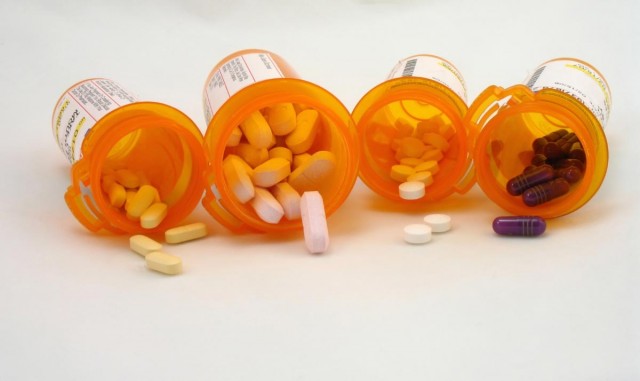
Advertisement
A Philadelphia man is suing Johnson & Johnson, claiming the pharmaceutical giant’s diabetes drug, Invokana, damaged his kidneys. Invokana is made by Janssen Pharmaceuticals, a Johnson & Johnson subsidiary.
The commonly-prescribed drug had only been on the market for two years before the U.S. Food and Drug Administration determined it caused “too much acid in the blood and serious urinary tract infections,” according to reports, resulting in the required placement of a warning label on its packaging last month.(1)
Enforced by the U.S. Food and Drug Administration, the new drug warning applies to an entire class of diabetes medication called SGLT2 (sodium-glucose co-transporter) inhibitors, for which Invokana is included. SGLT2 inhibitors work by preventing sugar from being reabsorbed into the bloodstream.
Series of side effects plague common diabetes drug, yet it remained on the market
On Dec. 4, 2015, the FDA forced Johnson & Johnson and other manufacturers of SGLT2 inhibitors to warn consumers via labeling that the drugs may cause ketoacidosis, a serious condition that can cause diabetic comas and death, according to the American Diabetes Association.(2)
Invokana has been linked to other complications, as well. In 2015, it was reported that Invokana could increase the risk for developing kidney problems, including “kidney failure or impairment, dehydration and fluid imbalances, kidney stones, urinary tract infections and abnormal weight loss.”
In 2013, shortly after the drug’s release, the ADA determined that Invokana increased men and women’s risk for developing yeast infections. It was also linked to decreased bone density in users, causing frequent bone fracturing in those taking the drug.

Just days after the FDA officially posted its new warning about Invokana, Arthur Portnoff, who now resides in Texas, filed a lawsuit against the pharma giant, detailing the side effects he suffered, including ketoacidosis, which caused his hospitalization.
Man sues drug maker just days after it was required to disclose health risks
Portnoff, a type 2 diabetic, says he noticed the adverse health effects just a few months into taking the drug. He is accusing Janssen of bringing the drug “to market without conducting sufficient studies to assure its safety to patients,” reports Lawyers and Settlements.(3)
“Not only does Portnoff accuse Janssen of not alerting consumers to the risk, he also accuses Janssen of withholding information about the risk for diabetic ketoacidosis and Invokana adverse events from regulators.”
His complaint states the “Defendants withheld material information from the FDA and misrepresented material information regarding the risks and benefits of Invokana in its communications with the FDA.”
Portnoff’s Invokana lawsuit is just one of many.
Illinois resident William C. Counts also filed a lawsuit against Janssen Pharmaceuticals, Johnson & Johnson and Mitsubishi Tanaba Pharma Corp. over Invokana last year, alleging the drug caused him severe kidney damage.(1)
Counts is seeking $75,000 in restitution relating to a number of claims, including “product liability, defective design, failure to warn, negligence, fraud, misrepresentation, and breach of warranties.”
The lawsuit “alleges that the plaintiff, a diabetic, was prescribed and began to take Invokana in or around February 2015 in order to lower his blood sugar. Rather than improve his health, however, the plaintiff alleges that the drug caused him severe kidney damage.
“The plaintiff maintains that he relied on the claims made by the defendants that Invokana was a safe and effective for treatment of diabetes. He further alleges that he and his doctors were unaware of the risks because the defendants failed to disclose them.
“As a result, he seeks compensation including medical expenses, payment for pain and suffering, punitive damages, and reimbursement of attorney fees.”
Sources used:
(2) Diabetes.org
Submit a correction >>
This article may contain statements that reflect the opinion of the author
Advertisement
Advertisements















